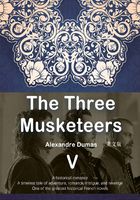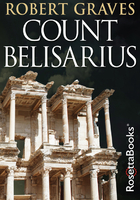They were named after kings.
Try explaining that when they give him their confused looks, after just barely managing it with roll call, usually settling on what they assume was wrong anyway, a clunky absurd "Exer-excess." Sometimes they might risk the Z-sounding X's—"Zerzezz" being the most common mispronunciation, but rarely do they make it just a few nudges over to its rightful "Zerk-sees."
(Nobody was bothering to explain, of course, that the family had already made concessions, inside the home and out, by settling on the Hellenized versions of the old Persian names—try the actual Khashayar if you wanted a headache with pronunciation.)
It's the last name that they rush to get out, hoping it might rescue them from the insult-and-injury cycle, with its familiar American form—the simple, biblical even, "Adam"—not realizing it's there where the most damage gets done. In spite of Xerxes's secret and sometimes not-so-secret acquiescence to the Americanized "Aaa-dumb," Darius Adam—whose first name fared well once he let go of too much Dareeyoosh-ing, blessed/cursed by American black men's fortuitous lease on a simple "Dairy-us"—would never once take what they could give on his last name.
"Odd-damn, please," he would correct every time.
"A-D-A-M-S, right, sir?"
"A-D-A-M. Zero 'S,'" he would grumble.
"A-D-A-M?"
"Yes, A-D-A-M. Odd-damn! Odd-damn!" he would shout, like an overzealous standard-bearer, brandishing his coat of arms.
"Okay, okay, sir! I just assumed A-D-A-M would be Aaa-dumb. …"
"No, trust me. It's my goddamn name. It's my goddamn Farsi name. Persian. Iranian—or Eyeranian, now you understand? Take my goddamn Odd-damn word for it." Now he was fuming—nothing bothered Darius Adam more than when jokes, puns, rhymes, et cetera happened without his permission.
"Ha, yes! Apologies, Mr. … Aa-damn?"
Just fuming. "To hell with you."
He didn't know how to make it clearer, that it had nothing to do with their Adam. He remembered a particular ordeal during young Xerxes's first season in kindergarten, back when he was cute and everyone was friends with everyone, even the foreign, particularly if they were cute. Xerxes had had a friend with his own strange name, Ezra—apparently plucked from the biblical baby name books by the suburban Baptists to whom the gold-cross-and-"Total Devotion!"-T-shirt-wearing five-year-old was born—and one day, when Darius was driving them home from school, came the precocious question that would define his very Ezra-ness forever in Darius's mind,
"Did you know, my parents wondered if you were Christians or Islams?"
Darius Adam was furious. The kid was five. What did he know about Islams? "Why do your parents want to know?"
"I dunno," he grinned and added rather brilliantly, Darius had to admit, for it did absolve him in a sense, "I'm five."
"Yes, well, you can have them ask me."
"Okay. Did you know, what's your last name?"
"Odd-damn."
He was five and brilliant and an asshole, Darius decided when Ezra then turned immediately to his son, with a giggle, and said, "Xerxes, what's your last name?"
His son immediately—this was the age before parent fearing, after all—answered him with a clear, bold, "Aaa-dumb."
Ezra giggled on. "Did you know, that's the first man!"
"No!" said Darius, immediately depressed that it had come down to just a "no," a desperate general negation, as in: I negate you, little Ezra-asshole, and everything you are, your world, your parents, your beliefs, your America, no no no! What else could he say? This was no time to chastise Xerxes. He wondered how deep he could get into it with this all-knowing baby Jesus-lover. "No," Darius muttered again and paused until he figured out the only calm, cool, but suitably astringent reply, "but I was wondering why, did you know, do you have a girl's name, Ez-ra?" He knew he was likely wrong but as it went in their New World, sometimes wrong hurt righter than right.
That evening he had a long talk with Xerxes, who had, as kids do, immediately forgotten the whole thing and moved on with his life. "Odd-damn, Xerxes. It is not an American name. You must remember that. You are Persian. If not Persian, then Iranian. Two choices."
"Yes, Daddy."
"Actually, you can call me Pedar or Baba if you want."
"Okay, Daddy."
"And when people ask you about Adam, of Adam and Eve, you say 'no relation,' got it?"
"Who are they, Daddy?"
Ignorance was bliss—no need to make the forbidden fruit sweeter for his newly irritating young son. "Oh, just Ezra's parents."
Routinely, over the next few years as their relationship grew more and more wordless, the silences becoming more their trademark dynamic than incongruous episodes, Xerxes, still too young to recognize the genius behind his annoying inquiries, would find occasional moments to pierce the dead air with his favorite questions: "Who is God's wife?" "Does everyone's caca look the same?" "How do ants make babies?" and sometimes, "What does our last name mean again?" Darius assumed he knew but was trying to trap him, hoping for the day he'd just give up and collapse into "Aaa-dumbs" and admit they were just stupid Americans, too.
"It means human."
"My name is Xerxes Human?" he would say, often spiking the question with giggles.
"No, Xerxes Odd-damn," Darius would snap. "You don't have to translate every goddamn thing on earth to the English, you know."
Usually Xerxes would stop there but when he got older and smarter, an older and smarter inquiry got tagged on: "Dad, does it interest you at all that Adam was the first man in Western civilization, and our last name Odd-damn also means 'man' or 'human'? What's your take?"
"Oh, Xerxes," he would sigh, long and hard, stalling in the universal annoyed-dad manner, while his mind raced for negations of an appropriately intellectual magnitude. He was smart, his son, but na?ve, certainly. "You're still young apparently. One day you will grow up to see the world for what it is: disconnected and chaotic. Not everything is linked. You are what you are; they are what they are. Grow up already."
And so he did. And still, in Xerxes's head, there were theories.
For Darius, the Adam/Odd-damn fight never ceased to upset. It was he, after all, who had chosen the cursed spelling at the INS office upon their arrival to the country. An agent had eyed the snaky Farsi script on their travel documents—their nonsense curlicues that were supposedly script and scribbled from right to left, the backward people!—and demanded they, right there on the spot, come up with a spelling for their Green Cards. He had debated phonetics with the bored agent who offered them "Autumn," "Oddman," and "Adam." In the end, a neighboring Iranian in line had made himself known and said "Adam" was a winner, as it meant the same thing, human really, and Darius—immediately equating etymological shoulder-rubbing as infernal conspiracy theory, perhaps another way in which the West had robbed his East, taken his Adam as their Adam—had decided, why, actually, yes, sir, he would take it back. Only to be later more infuriated by the nonsense "S" tagged on to many American "Adams" families (insult-injury cycle further aggravated by the fact that Adams meant "chewing gum" in Farsi). Still, at the INS office he forced a smile at this new variation of his coat of arms and he adopted and embraced his Adam without ever considering the everyday phonetic battles that would make up a large part of his daily life in the New World.
But even so, to Darius, "Adam" was not the real problem. The first name was the source of their real problems, his and his son's, something the outside world could never fathom. On the upside, it was a small chip at the inherent claustrophobia of the closetsized dismal father-son universe—they shared the name trouble. They had both been tagged, perhaps even cursed, at birth, each by his own father—who knows out of what spite or vainglory they did it, Darius would wonder, passing on the musing to Xerxes, who later, upon his severalth nervous breakdown, would also wonder about the possibility of socio-psycho-semiological-metaphysical curses, the fateful power of fucked monikers, the lifeless and nonexistent and mytho-historic-inanimania once again one-upping the living—something like that anyway, as during those periods when their names would come rushing out at him, this was how Xerxes would think, feverish from bouts of familial chaos theory and hived with ancestral existential smallpox. … The underlying problem, both men thought, was that from the moment of birth, his Xerxes to his Darius and his Darius to his Xerxes, was to create one hell of a highly flammable foundation for the mayhem dance of their joint kingdom of Adam.
Darius, King of Persia, Part I
Let me explain, he would begin, our history is a his-story, blood on blood, a hot one, and if you take the line and read that which is underneath the lines—It's 'read between the lines,' Dad, 'read between the lines,' you mean, his son would hopelessly correct, and he would insistently ignore, preferring his errors to their right—then you, you, son, even you, will see your own story.
Somewhere around twenty-five hundred years before my birth, born out of the royal family Achaemenidae, was one Darius, king of Persia. He died in the year 485 BC. Correction: he was assassinated. He was sixty-four. Not much time for me until my killer comes, if we are to believe the connections, and why not, in a world where it's more likely that crazy things happen than that things coincide perfectly?
I thought you thought things are never connected, that looking for connections is, Xerxes pointed out, retarded.
I say judge for yourself, his father continued. Darius ruled over Persia from 521 till his death. He was the greatest of men—how do we know? Largely from him, judging from his own inscriptions, especially the reliefs of Behistun in which he chronicled his life, having no choice but to face that okay, fine, yes, I, Darius, am the greatest. Cannot beat this bush around, son.
Cough, mustered Xerxes. Cough-cough-cough. Cough.
Listen, before him it was hell. It all began with suicide in a time of governmental corruption—the mad Persian king Cambyses, the second—and then his throne taken by the usurper Smerdis … but these men were not chosen ones. Darius observed all that hell and soon, with what he said was the help of Ahura Mazda—
Who the hell?
God, son, god. The Zoroastrian God.
Mazda? Like the car?
That is a stupid connection, simple coincidence.
But I thought you said that connections—
Enough, son—anyway, with his God's help, he secured his kingdom. Now there are legends, mostly by the bastard Herodotus, the Greek heathen historian who says that Darius, a man who was not most obviously up for the throne, left the decision of who should be the king of Persia to his ally's goddamn horses and they—the horses—decided.
Funny stuff.
It was clearly a stupid, possibly mistranslated, legend that I include here only to highlight that history is full of bullshit. Anyway, Darius didn't necessarily own the throne, because his father Hystaspes was still alive. But his father didn't vie for it; evidently he was courageless. A weak guy, but not a bad one. Hey, I get it: it's every father's dream, I would dare say, to be weak in the shadow of his son. It's a defeat, sure, but it's also a family triumph. Like how I let you win sometimes. I could just refuse to get off the couch, and say, I am old, I am tired, I am weak, here son, you are me, better than me, mine, my creation, therefore more me than me, but yet under me—here, you have a go. I find this part moving.
So to make short this longer story, Darius killed the usurper and won the crown. And he took the usurper's wife, Atossa. That's how things went back then. Of course. She was happy, by the way—she was okay. Find one like this, by the way—the ones you don't have to kiss up to or do big things for, the ones you don't have to fight either, or buy or force. Find an easy one—they'll look hard, and maybe only much later will they become that hard. Atossa, from what I can guess, didn't care too much about what happened as long as something did happen. Behind the scenes, she had more than enough control, as they often do.
It's the others you worry about. Because people being stupid jealous bastards like they are now, they rebelled. Everywhere in the eastern provinces, Babylon and elsewhere, usurpers ran for office, fakes claiming the right to rule, con artists posing as heirs of the royal race, and they gathered their armies. Darius, with only a small army of hard but good guys, shut them up, smoked them, and went undisturbed. Because he might not have had men's support, but he always had God's. He was king.
He was the king. He was known for his organization skills, for creating states, extending and drawing borders in total wilderness, forming governments, and for bringing civilization to the early world. He had no time for barbarous tribes. He introduced gold coinage to the world. He dug a canal from the Nile to the Suez. He expanded commerce. His ships sailed the seas on constant exploratory expeditions, all the way to Sicily.
He is documented in hieroglyphics, in Jewish scriptures, in the Vatican. He was seen as a high priest, a spiritual statesman. He is the reason all the Greek oracles in Asia Minor and Europe stood on the side of Persia in the Persian wars and told the Greeks to attempt no resistance. Their enemies couldn't even rest easy as enemies. This, son, is more power than power itself, you see?
He is documented in the Bible, if you want enemy evidence. Nobody is proud or ashamed, it is what it is, but basically it was his order that placed Daniel in the den of lions. Yes. It was Darius who made Daniel one of the administrators to rule over his 120 satraps. Darius's stupid but loyal satraps feared him so much that they did anything in their power to please their king. But when Daniel started looking too good—who knows, he was probably a kiss-ass or a fake, or perhaps good, I don't know, the Bible is written so you can't really figure out anything, sorry (don't read it, by the way)—it appeared that the king might appoint him as the only administrator and have him rule over his kingdom with increasing power as, say, an adviser. Well, the satraps, thinking they were doing good for the king, I guess—and who knows, maybe they were, who knows what history would look like if history had a nudge and tuck and rip here and there—they decided to find grounds for charges against Daniel in his conduct of government affairs. But they couldn't find a piece of his dirty laundry. Finally the satraps decided to pin him in a way no one could prove really for or against: in matters that had to do with God—on impossible charges basically. So the administrators and the satraps went as a group to the king and said their usual 'O King Darius, live forever!' and then they said Darius should issue a law that anyone who prays to any god or man during the next thirty days, except, of course, their king Darius—I guess in a move to symbolically free up God's time so God could just be one-on-one with Darius, not a bad gesture—anyone else shall be thrown into the lions' den. Well, Darius wasn't a fool—who would say no to that? When an intelligent man hears something that will work for him, why not?! And all it would take would be a break from God for his masses. No biggo, right? Who would have guessed goody-goods God-obsessed Daniel would mess up his own life, and there, thoughtlessly, put one of the first dents in East-West relations, by making Darius look like a cruel, unusual dictator.
Ah, Daniel 6:1–8. But, Dad, isn't the moral more like—
Enough, checking facts, the nerve of you. … Look, Daniel doesn't learn a thing and is a biblical hero. And so what, Darius rules on. And even if the whole story is true, maybe it taught the masses a few things: people loved this man and his devotees would do anything to keep him powerful. He was a man of law and when laws were made, he went with them all the way. And lastly, he was a man of power and what a trap that is—power, of whatever nature, good or evil, in the larger scope of things, all amounts to the same. Remind you of your era? You wish. Your era thinks they're gonna live forever—they won't. Wait till burst goes that bubble and you see the ugly side of the real world—in every man's life the world's worst shows itself. Darius was all too aware and I think he feared death, like a normal God-fearing common man. You're not a full man until you feel that fear, and commit to live with it, and further, to die by it. For Darius that fear must have suddenly overcome him upon his great-dom, and it must have become like a shadow before him—a fear you can always see, especially in the sunlight, your shadow always at your side, sharpest when you are shining the most. To get by, the happiest of men are ignorant of their shadow, simply blind to its existence. But not the great, truly powerful ones—certainly not Darius. Fear is their fuel.
It was Darius's own father who taught him "Enough." His "Enough" however was a different "Enough." When he cut someone's sentence off with an abrupt "Enough," it was about merciful truncation, the "Enough" that said, Okay, son, okay, wife, let's just snip that sentiment off right there at its best, nicest, happiest point, before it goes bad. It was Darius's father who would silently wander off just before he sensed a movie's climax would strike, not interested in the boiling point that would lead to the chaos and the danger and the misery—he would often walk back in for the last few minutes which he, without fail, always sensed correctly: a musical number, a final kiss, an end that was a beginning really. The old man was not interested in the ugly things in life—he was interested in turning frowns, indeed, upside down. Bring up death and before you could add a word, he was "Enough"-ing it back to life. He would remind them that life was short, there was no time to waste dwelling on wars, nightmares, farts, earwax, tragedy. The old man even had dull brown eyes that were always comfortingly murky; young Darius imagined the fogginess was the mucousy film of nice dreams, the half-blinding blanket of goodness, an obscuring handicap that gave the world its more cordial tint. Darius's own eyes, flashing and black, were always desperately clear—he saw everything, and generally everything was as bad. As bad, he would insist, as what his father seemed to be hinting with the enforcement of his adamantly benevolent, fascistically celebratory, false optimism.
Unlike that seething cartoon-cat scowl that Xerxes's mind's eye always equated with Darius, Darius's memories of his father were of him constantly mid-smile, smiling through everything. Apathetically smiling at Darius's being sent home from school for sulking too much: He'll, they'll, everyone will get over it, that, everything really—insistently smiling at his first stillborn child: God got him back, he is the lucky one, not us—deliriously smiling at a thief in their house during Darius's twelfth birthday party: Robber, I am sure you will realize what you are doing is wrong, and will leave shortly, otherwise I am sure you will take what you will and leave us, and our lives will go on, agreed?—softly smiling at his wife's inexplicable bouts of crying later in her life: It is just the eyes, and maybe the soul, no difference, cleaning themselves out, perfectly normal, woman—rigidly smiling at the news of his mysterious disease, the malignant cells that were doing everything in their power to chip at his aged anatomy, ultimately winning in a matter of months—and what is the surprise in that, we all knew our lives were temporary. No regrets, no tears, no needless helpless sadness, you hear me? Enough.
Darius secretly worshipped his father. But the worship was complicated, sometimes by hate. How he would stuff Darius's early silences with singing—the old man forty years his son's senior, bald and big-bellied, although still managing a lithe lankiness with his towering six-foot-five stature—suddenly breaking out into cringe-worthy off-key maudlin song, most likely songs he made up, often snapping along with a rhythm only he sensed, a seated jiggling that almost resembled dancing. It was too much for Darius, who felt zero connection to any internal rhythm. Sometimes to make him stop Darius would say, Father, I have something to say. For a second the old man would stop, Darius would be silent, but then he would start again. But Father, I have to tell you something. And so he would stop and Darius, unable to think of anything, would resort to telling his father something terrible, just to hear that comforting promise-filled "Enough" rather than all the nonsense jigs—something like, Father, I would like you to address something I think of every night, every day, namely that I am very scared of the fact that we all have to die.
He would want his father to himself, but it would be rare. There were always house parties, when the old cottage would be filled with strange-smelling relatives all eager to kiss and hug and pinch him, all saying the same nice things, with their pots full of cold plastic-looking stews, their baskets of badly bruised apples and pomegranates, their fistfuls of stale almonds and cracked candy—all contributing to Darius's hating relatives and parties and most food for the rest of his life. But he remembered one house party in particular, the first time he had consciously registered his father drinking alcohol, finally old enough to understand drunkenness at fourteen. His father, as usual, was at the center of attention, but more so even with a few extra and sometimes punch-line-less jokes, a zanier brand of his usual unshakable tyrannical happiness … and he remembered a guest, maybe an aunt, or a cousin—who knew the difference between any of them?—making an announcement. Her voice had broken through the chatter with an elated shakiness, declaring, It must be said, our host and his lovely wife are the best couple in our midst, by far! Darius remembered his father applauding and then swaying a bit in his inebriated state, making it to the kitchen, bringing his flustered wife over, and asking the guest to kindly repeat the compliment so his wife could hear. She did. And Darius's mother—maybe drunk, too, who knew—modestly laughed softly and wiped an eye, taking her husband's hand, waiting for him to say what had clearly been on the tip of his tongue for several minutes, or maybe his whole life, yet another perfect proclamation, a near-proverbial utterance, one that would send chills down Darius's spine forever, whenever he'd think of his father—particularly years later at the old man's deathbed, when the impact hit more ironically and sadly than ever, oh, the deep poignant horror of the beautiful devastating declaration—My friends, he had announced without a moment's reservation in front of them, in front of them all, You see, I would take the deaths of my very own children before my wife's—it is true, that is how strong our love is!
And Darius sat with his sister and brother, both of them under ten, he the only child old enough to fully comprehend the atrocity and, apparently, the nobility.
Many decades later the old man's sentiment, by the powers of some cruel genetic osmosis perhaps, made its way organically into Darius's own heart. One early Sunday morning, with Xerxes still in that viscous sleep of prepubescents, Darius and his wife woke up immediately snappy, ready for a fight, any fight, somehow both of their belligerent moods coinciding. It was rare for them both to be so simultaneously invested in a fight, but there they were, whispering sharply, hissing like riled snakes, whipping insults at each other as they swallowed hard whole bites of their cold breakfasts in an unlit kitchen, until finally the episode required a climax, and he snapped Enough Enough Enough!, waved her away, readied his teacup and turned on the stove, and accidentally set the gas flames on his wife's stove-top-lounging hands. She screamed so loudly that Xerxes rose out of his cruddy slumber, in time to witness the spectacle of his mother's shaking charred peeling hand, sound-tracked with her animal moaning. That against his father franticly pacing in circles, searching for his keys, muttering, It was an accident, it was an accident, finally following his hysterical wife out the door, and slamming it on their son without an explanation. Later, in the emergency room of the hospital, Darius found himself turning to her, perhaps crazed to the point of involuntarily repeating some unhappy history, and saying something much bigger and much more horrible than an apology, something he felt had been in his system since that childhood house party, that he, too, perhaps, in the confusing moments when forced to evaluate love and loss had to face: My wife, he had said, in a voice that was not his, gasped it out, My wife, when I accidentally did this to you, all I could think then and now is that I am so regretful of your pain, your pain ever, that I would in fact rather have it be my own or even my own Xerxes's pain—I feel it that much, do you understand me? She had looked at him awestruck, and finally, when she could manage the words, warned him firmly that he had better shut the hell up or she'd have one more reason to wish him dead.
The Iranians, Xerxes thought, were always wishing things dead, imagining death, wondering about the dead, ready to curse everything with dead-stuff. Death was everywhere.
"Enough": it was not Darius's old man's last word, as many would have probably plugged into his voice, say, in the novel of his life. His last words unfortunately—so so unfortunately, all the family secretly thought to themselves—were a request for a sip of marrow jam, something that it was safe to say was utter nonsense, but forever emblemized in his family as a poetic man's final motion at natural poesy.
Darius was eighteen, and he thought stunted by it, because even at that point the idea of death, something that he obsessed over every spare minute of his adolescence without any resolution, never made any sense to him. He asked his mother, So, where exactly—and if you don't mind being as specific as possible, I'd appreciate that—is Father, in your opinion? And she, frail, tired, suddenly an old lady overnight after his death—turned to him each time and snapped, Oh, of course, he is walking with God. And Darius having heard the phrase before, understanding what a euphemism was—pressed further, But what do you mean by that exactly, Mother, if I may ask? What does this walking with God really mean? Do you literally mean walking? Is he walking with God, like a friend? To where? From where? Are they speaking? His mother, frustrated and tired, would agree to it all, and in playing along turn the abstraction awfully concrete—because it was always easier to render a world literal, since the possibilities of the figurative, rhetorical, and speculative were inanely multitudinous, the older Xerxes later rationalized—she'd agree, Yes, he and God are walking. They began at this world. Now they are walking to the other. It is … a mountain. A long winding road up a mountain. They are talking about how much your father loves us. Your father looks good, happy. So does God. They are also talking about how much better it is to be where he is than where we are. They are having a good time. And Darius would ask, And so that in your opinion is the kingdom of heaven? And she would think and pride herself on being able to quickly manufacture an apt conclusion: The kingdom of heaven, as I see it, is a place we in our heads know to be the kingdom of heaven, but the dead, when in it, have no idea, so they wander with God through its roads and valleys and peaks, and climb endlessly, and only God knows they are not going anywhere, that they are just in it, that it is what it is. The dead are very ignorant. They have no need to know. The dead don't understand "dead." The dead are very happy.
Darius became the man of the house. At the age of eighteen, on top of being a student—Darius had been accepted into a mathematics program at the local Tehran college—he became responsible for his sister and brother and even his mother. He took an extra job selling sour apples and iced sherbet on the streets to support them. His mother, resenting their lot in life, her husband's passing for no apparent reason, no explanation but some unnamed killer inside him that had decided to deprive his family for the rest of their lives—decided to mostly ignore Darius and pretend that he wasn't saving their lives. Darius believed that in those final ten years in Iran they had at most three longish conversations. The rest: single sentences, where both parties felt the resentment and blamed it on a dancing, singing, mysteriously summoned dead man dreaming of marrow jelly while traipsing around on a mountaintop with God. …
The older Darius speculated that his sudden distance from his mother around that time led to his low opinion of the female gender. I have problems with my mother, I suppose you should know that, he found himself often telling women he dated, knowing instinctually that it must be important information for women. Most women would giggle it off and even pretend they were relieved, and then in a matter of weeks or, at best, months, dump him.
Until he met his wife—with whom he found himself taking it further, I don't like my mother at all really, what do you make of that? She had shrugged and so he had added, Or women, most women really …? She had looked at him glumly, eyes as dimly lit then as ever, and muttered, Neither do I. Except I hate men, too. When Darius thought about it some more, he felt he agreed.
During their courtship, nothing meant more to him than their common misanthropy. How relaxed he would be when they would go out to a popular Tehran eatery and he would notice its flaws, and then she would suddenly voice them, or else it would be she who would be visibly jarred, and he'd manage to pinpoint her complaint and moan about it. They would bitch and outbitch. They would go out dancing and instead of actually dancing they would have conversations about how all humans looked stupid dancing. They would share a bottle of wine and agree amid their drunkenness that feeling drunk was miserable. They would have sex and chastise themselves for not having waited to do this really overly championed thing when you thought about it—what a ludicrous, monkeylike, nasty, clumsy, ugly act it was. He would point out that she had the typical bumpy too-big Persian nose that he, unlike most Persian men, did not fetishize at all whatsoever. She would point out that his bony furry back repulsed her.
He warned her after proposing that he could see already that their marriage would be plagued with misery, that he was not his father, he was not blind and happy, he would not in that same meaningless way leave a family—he would rather control the family with a fist, he would expect things, maybe even demand things, and perhaps could go as far as not being trusted. She said she did not care, because obviously, in loving such a man, she deserved it and that she didn't really care, just needed something to pass the years.
They married.
And they both thought like this on and on until the days when the Iranian Islamic revolution became a reality and took over their worlds, and turned their entire ungrateful existences upside down. Like much of their class, alarmed by the dark wave of new "R" words—reform, revolution, religion—they felt their old lives turn unrecognizable overnight. It was hard to tell if the nation was crumbling or building itself—agendas were traded for agendas, crass capitalism was melting down into austere theocracy, paranoias of the secret police were evaporated by the confusing darkness of an old God's newest incarnation. Action dethroned thought—all their people knew to do was to move and move fast.
And so on a train to Istanbul—fleeing, seeking neutrality, anonymity, normalcy, suddenly, both seized with the alarming reality that they were running away, fleeing from their homes, maybe forever—they looked at their young son, humming obliviously on his mother's lap, and she brought it up with tears in her eyes, and he agreed instantly, that of all the naysayings they had done in their time together, perhaps the one they feared and regretted and hoped hadn't cursed them the most was the one in the time of their dark courtship, where they had both agreed that if they ever had a child it would be miserable, untalented, ugly, uninspired, a nothing of an offspring, the end they would both deserve: an error even, at best.
Darius, Part II
Every great man makes some mistakes. This was his first one: in 512, Darius decided on a way to secure peace on the northern frontier of the empire; he would launch a war against the Scythian tribes. Wrongly, the army went to the Black Sea, where the Scythians were not, and the whole army got lost and frustrated and it came down to chaotic nothing. The catastrophes of geographical errors. Darius was haunted at the very least—he had to be. Herodotus, the over-eager historian of ancient misfortunes, is all too happy to tell his tale; as for Darius's own inscriptions, generally he wrote it all, the good and the bad, but this episode is the only chunk of the inscription he left on which most of the tale has been destroyed. Who knows?
Son, I hate to tell you that bad fortune in life is often answered with more bad fortune. The age of the Persian Wars had come. He made the preparations, took the meetings, laid out his plans, knowing well that it would be a trial larger than his lifetime. The world was in a state of chaos: Egypt uprising, Greece restless, Persia suddenly insecure, the pagan tribal world hungry. And so it came that after a rule of thirty-six years, with much unfinished business, Darius was killed—his murder nothing to ponder over, no biggo, as back then no great men died of natural causes, killers just appeared to assist history when they perceived these huge men's pathetic ends, as if it were their natural duty—and there the bulk of the problems began for our people. Forever, really.
In the year before his death, when he sensed his end—great men know confidently their descents as well their ascents—he had come to a time when he had to decide which out of all his sons would be his successor. He had the elder of his sons from a first wife, which a world law of sorts would dictate the crown would rightfully belong to. But he also had Xerxes, the first son born with Atossa, after he became a king, remember—Atossa, who had already paid great dues, wed constantly to the wrong dead men, from Cambyses to Smerdis until Darius (and he had to marry her in order to confirm the legitimacy of his taking the throne from her ex)—Atossa, who, sure, maybe he loved, but to whom we know he owed, must have felt so at least, because without pointing any fingers, they—history—gently tells us that she, unlike the wives of that age, had power over him and perhaps too much—Atossa, who didn't know any better when she insisted that he choose her Xerxes … and since all children at a certain age, we can agree, are the same, well, he didn't know any better either. Xerxes would be king.
There is an old saying that exists in every language, including Persian, that translates roughly to this: "Every man is king of his domicile, but it is secretly his wife that really rules him." In every man, this semiproverb lives, although precariously—it is seldom publicly acknowledged even between men, for they either A) dismiss it as cliché and prefer not to repeat it should their wives take it too seriously, or B) recognize it as true and prefer not to repeat it should their wives take it too seriously.
Lala Adam knew it well. It equaled vengeance, the vengeance which she imagined must be a given in all marital unions. That was what you got for tying your life to this one person, chosen on some sort of essential whim, like picking a pebble on a pebble beach. They were all the same, and yet were they? Who knew?—Lala Adam gave it a rating of shrug. Darius had been her only lover, her one partner, and while there had been a few suitors, she really had no experience with romantic unions. She barely had a chance with herself.
She blamed it on literally having had no model, no parents that she ever knew of, just aunts and uncles and grandparents and family friends and a brother, because her own parents were too busy spending the entirety of her childhood somewhere unimaginable, yes, walking with God perhaps. Among mountaintops indeed, she guessed, cold, icy, dark—just where they had left her.
Lala's parents had lost their lives in a car accident when she was five. She was in the car. So was her older brother, who was nine. There was an ice storm in the hills of Mount Damavand, and her parents—the wealthy weekend traveler type, that was what her memory preserved them as, two people ever in love, always in a car, eternally on the go—were driving. It was night and apparently the roads were icy and unsafe—unsafe for cars, unsafe for a family, a family with small children, helmed by young adults, four full futures ahead of them—when the car, apparently taking them home from a family gathering at a second or third cousin's country home, deep in the thick unlit Iranian countryside night—a sky she remembers always possessing a blackness that was like negative space, a trick presence that was a true void, an infinity that was all dead-end—suddenly collided with what was described later as a jagged rock, causing the car to overturn and topple down into wilderness. The couple died; the children lived. In the following days, the police and the relatives repeated that their deaths had to be instantaneous, but who knew? Only her brother bore the burden of pure memory, the night in which he and his little sister—too little to fathom anything but a vague entrapment in an icy silent darkness—endured twelve hours in a car with dead or maybe slowly dying mostly mutilated parents, until finally well into daylight a farmer discovered the wreckage.
The Iranians, Xerxes thought, it's like they were made for tragedy, always trapped in some sad dramatic past, generational pain, familial anguish, personal turmoil, a collective tragic disposition, an almost genetic mass pessimism. Tragedy, everywhere; blood always in the air.
Lala had many things she did not want to think, much less talk, about. One was her brother. Her parents, she would talk about them without pain, for luckily her memory kept them enstoned as the gorgeous young couple of family photos, with their expensive coats and wild smiles—but her brother, very much living, somewhere, anywhere, was a loss she could not bring herself to face anymore. For most of her childhood he had already been a bit lost, as much of a stranger as a brother could manage to be—always behind closed doors, in a private torture nobody could really grasp—and just when she felt old enough to face him, he packed his bags and disappeared without a word to her or the aunt and uncle who had raised them. It was on the night of his high school graduation. No one went looking for him really; it was expected that he would be off, gone seeming like his natural state. She heard about him more than once, much later, from the occasional relative who would call to check on her—still out of the pity-reflex, feeling eternally responsible for her, still considering her their family tragedy, the little girl who was practically born out of the consummation of a dead couple they seemed to imply, to her disgust—and they always had some vague word that he was "out there." Where, they never seemed to know for sure, but the family gossip always added up to some blurry black-and-white sketch of a sick man very much alone, his madness multiplying with every year. There were rumors he lived in Europe in a huge house and was attended to by many nurses; there were rumors he was deaf and blind and penniless and in Asia; there were rumors he was in the States, involved in drug trafficking; there were rumors he was in Iran all along, hiding in the rural bits not far at all from where his parents took their last ride. Lala never listened much to what they had to say—she never even asked. Eventually time fractured any contact she had with her relatives. She lost their numbers, neglected to keep track of their migrations, never learned the names of the new nieces and nephews and grandchildren and in-laws. Soon even her aunt and uncle became ghosts to her. They were there somewhere, but it would take something like foolishness for her to rouse them, she had convinced herself.
There were other topics also: she had no comment on her old homeland, for instance. She wanted to break away from it, pretend that when they fled, all the everything that they left—a child's nursery full of toys, their books, their clothes, their furniture, their lease, their families and friends, everything but two suitcases mostly full of photo albums and letters and some winter items for who knew where they would end up—all the loss helped make it over for her. She repeatedly claimed she was not interested in discussing that particular past, because, You cannot change it, you can't even understand it, talk and thought doesn't help, what's done is done, and I think all I and my people want—if I can talk for my people, ha!—is a chance to live again, start our lives from where they were cut off midlife really, early life really, because with all that loss, I tell you, if I were to really spend my days facing that hell I would in a second put an ax to my neck. I'll give you Iranian tragedy. It's all there. …
She was happy in America, she claimed, America with its Disneyland and Las Vegas—her two favorite destinations—home to ignorance and bliss, a land unloaded, haven without baggage, a fresh starting point for people to lose their minds!
"You mean," young Xerxes interjected, carefully considering his mother's nonsense handling of the English language, "to forget their pasts? Let go of their memories, yes?"
"Yes, lose their minds!" And so she did, little by little, carefully find ways to banish the old from the new, hoping the body might influence the rest of her. Her first change in the new country: dyed hair. Her dark classic black became an orangey-brown that she announced was "tawny honey," pointing to the label and its overly tickled chestnut brunette. Her next move: the language. Never a bright student in Iran, never one to study much—certainly not enough in the many years of required and seemingly superfluous English classes—she suddenly began spending all her time and money in adult English classes, at one point taking two, insisting one was more conversational, the other for reading. She learned. She began having chats with people in the supermarket and the post office. She began mimicking their lazy pronunciations. It inspired her next move: the changing of her name from Laleh. After months of dealing with being called "Lale" and "Lah-lee" and at best "Laa-ley," the answer finally came to her in the form of a credit card solicitation. Her first name, as usual, was misspelled, but somehow more kindly so. "LALA," it said. She immediately liked it and showed it to Darius, who burst into hysterical laughter.
"Lala?! Lay or Law? It looks 'la la la'!"
"What do you mean?" She asked, perplexed. The la's didn't translate—in Farsi, the sound for song was, after all, na-nye.
"Oh, Miss English speaker doesn't know her do re mi fa so la ti do! Ha!" Darius continued to mock, in no mood to throw her some rope. "La la la la la!"
"What are you talking about?" she snapped.
"La-la is American-nonsense-tongue for scales that are meaningless, children's chorus stuff, like song filler. It is like tada or ching!"
"Ching?"
"My point is," he enoughed, "it is not a name."
She scowled at him bitterly. Typical, she fumed as he walked off without the patience or care to get her to understanding—Understand what? understand nonsense?! he shrugged it off—but she understood, all right. Apparently just for the royal hell of it, in the kingdom of Darius Adam, there would be no "Lala's." Even if it did mean song—which now that he mentioned it, did vaguely ring a bell, like something she had sometime in the nebulous past heard on TV—but even if it meant just that, how like her bossy parade-rainer husband to denounce that. Oh, Laleh-the-Persian-flower-that-does-not-exist-in-America is fine, but Lala-the-sound-of-happy-children-singing-who-maybe-aren't-paralyzed-by-their-family-tragedies-for-whom-not-everything-has-to-be-ancestral-and-plagued-and-deep, that Lala, no, it cannot exist! Not a name!
"It is my name," she announced to an empty room, loudly. "From now on."
To prove it she got a lawyer, paid him from their joint account, signed some papers, and came home one day to an unsuspecting at-peace Darius Adam and informed him Laleh Adam was dead and that there was only Lala, and if he did not recognize her he was breaking American law and could go to jail—she knew the last part couldn't be all that true, but she thought it could at least seem somewhat feasible in a country so obsessed with all sorts of strange freedoms. Darius Adam refused to let his peace appear as disturbed as it truly was, so he shrugged and said nothing, and she stomped off, annoyed at his best tactic—the simple, anticlimactic nonanswer—but for the rest of their lives together, he stuck to Laleh when he absolutely had to say her name, making her cringe every time, once past the era where she would actually bother to correct him. Usually his preferred tactic was to call her "Woman," or nothing at all. For his own reasons Xerxes Adam also automatically participated in the boycott of the oral pronunciation and thus active recognition of his mother's new name—the Americanized change, yes, being shameful on one level (and her out of all people in their family with the simplest name!), but furthermore the meaningless tenor and his mother's clownish sense of triumph over such a humiliating victory, it was too much, and just another example of how every man's greatest embarrassments would be indelibly linked to his most immediate creators.
Xerxes, King of Persia
Fact: Darius was a solid good guy; Xerxes, while interesting, ruined everything.
Xerxes, child of Darius and Atossa, ruled 485–465 BC, until he was killed in his own palace. Imagine that. He was known as the Persian king despised by the Greeks. He was the king who reigned over ancient Persia's decline from mighty power to fading empire, would you believe? He was the way down, while his father was the way way up. Ahem.
While Darius was regarded as a natural leader, a self-built man, Xerxes was spoiled and rottened. Easy to go for great when you have Dad's successes to feed you, no? He was raised in the very nice rich Persian courts, among slaves and women. Blessed and cursed. Had it not been for his father's glorious track record it may not have even occurred to him to follow through with the ultimately disastrous Greek expedition. They say it was his vain ways and the prospect of topping his father's fame that fueled him so crazily.
And why am I named after this total loser?
Because after Darius, Xerxes comes next, no stopping it, son—enough! Besides, some call it a kind of greatness—Xerxes became a legend in his own way. Herodotus tells us that after a storm on the Hellespont delayed Xerxes from crossing into Greece, Xerxes ordered that the waters be given three hundred lashes as punishment—yes! It was said that his army was so huge that it took the entire population of a large city just to feed them each day, while whole rivers and streams would run dry from their thirst—whoa! Old Xerxes was full of good story food, but even just that says something—when a man has this much fluff about him, this much head in clouds, this much smoke in eyes, what does it say about the man? Poor Darius was rewriting his life plain and simple on walls of dirt and rock, reliefs he knew were destined for nothing but ruins. Xerxes meanwhile was stimulating the imaginations of bored historians with fog and fairy dust. Big-wow guy, I guess, but in the end big wow does not pay the rent of a nation, you know?
You got that from me.
Oh, big wow for the big wow, son! Anyway … you can imagine that he had his father on his mind. So much so that ten years after Darius was defeated by the Greeks at the Battle of Marathon, Xerxes got together a big army to invade Greece and get revenge for his father's loss. Good boy, but of course he did it his way. His troops of ten thousand were fancy in dress and weapon, more fit for show than battle. It was in the ways of their leader—foolish boy—what could they do, these grown men, rough soldier types, all suddenly draped in heavy golds and gems, done up, weighed down. Xerxes: all showtime, and what a show. It gets worse: he's telling his men they can't cross the Hellespont by ship as that would have been too easy, of course—no, Xerxes wants a symbolic link that would bring worlds together for him, having his men work for years to build bridges that would connect the continents! Would you believe?! Where are they now? Absurd waste of all humankind's time—we would have been at least a couple years ahead if it hadn't been for the wastey ways of your namesake. Anyway, after Xerxes crossed the Hellespont he took over Greece. He won a costly victory at Thermopylae—the famous battle which ended with three hundred Spartan warriors creaming the entire Persian army in a last battle to the death—and finally reached Athens and captured the deserted city. There is a fine line always between victory and defeat, one must always be aware of the edge and know the boat can be easily rocked, but apparently Xerxes thought he was riding high. Suddenly, the Persian navy was routed by the Greek fleet at Salamis and hundreds of Persian ships were lost. The invasion ended in this disaster. The Persians, just barely past their moment of glory, had suddenly fallen—at the high point where it hurts the most to fall. Xerxes was left to retreat to his palace in Persepolis. His army was defeated by the Greeks shortly thereafter. And in spite of the defeat, Persia remained an important nation. And in spite of Xerxes suddenly withdrawing from his duties and, according to Herodotus, finding more interest in "the intrigues of the harem." Yes, oh, yes. Fifteen years later Xerxes was stabbed to death, probably by the order of his son who succeeded him, Artaxerxes; or the captain of his royal guards, Artabanus—in any case, by one of the men closest to him. Assassins, like I said, were no biggo back then, but to die by the hand of those close to you—well, there's a certain type that gets that end. That is how it is when you walk the line between famous and infamous, genius and madman, leader and dictator—the first thing to go: your mind; the second: the men closest to you. The women, the children, the riches, it takes a while for them to break off. But the men who were by your side, who saw it all, who can read you, who are your only true reflection, those guys, with a swift stab behind you, they're out for you—oh, when everyone is out for you, hell, be thankful for when the curtain drops, when the end ends, because, son, at certain points even nothing is better than nothing.
For most of his formative years, like those of his gender, Xerxes generally found himself in the company of men, or rather, boys. Boys with names like Chris, Ryan, Brian, and Joey, although even Ezra and Yukio would appear. In California, a "Y" name they could do but an "X" name—no, that was subversive, somehow off, subject to all sorts of avoidance, fun-making, and ill-founded investigation.
The hardest friend to make was, for obvious reasons, a boy named Adam, who, in spite of it became Xerxes's best friend through much of his single-digit years. As if to further taunt Xerxes for his name with its odd "Adam" surname and socially unacceptable "X"-y first name, teachers routinely took to accidentally calling Xerxes "Adam" when they meant "Xerxes." This was of course embarrassing on both ends, and soon what began as a minor annoyance turned into a major one and eventually something adding up roughly to a Problem.
The real Adam had many odds against him, odds which only multiplied in those awkward years—he was fat, prematurely pimpled, perpetually smelling of an already overripe boy-musk, cursed with a constant supply of unfashionable hand-me-downs, and of course incredibly untalented at sports—the sum of which spelled total doom in elementary school terms. And befriending Xerxes made nothing better. Soon, kids—catching on that Xerxes's insistence on his last name's proper pronunciation was wearing off a bit, that it was breaking down from the defiant revolutionary "Odd-damn" to the watered-down, half-ass "Odd-dumb," which had to mean very soon it would land as its normal, rightful "Aaa-dumb"—decided it would be funny to spread the disease to Xerxes's tiny empire of two, by disgracing his dumpy sad sidekick with the apparently correct pronunciation of his better half, "Odd-damn." Soon, agonized Adam grew all the more angst-ridden as the handball mafia and the jungle gym elite derided him with "Hey, Odd! Odd-damn!" Sometimes a clever wormy girl or two would hiss at him,"Damn, you're odd." Somehow it was Xerxes who came out unscathed through these interactions. It was a truly odd thing to have the object of another man's insult be you, odder to have that insult in no way touch you. Xerxes was amazed at the linguistic ingenuity of his peers. Kids had a way with saying fuck you to everyone, no one, and still one or two, all at the same time.
One day Adam decided to bring it up to Xerxes. Inspired by boredom to become unusually expressive as he and Xerxes spent their longest recess in unambitious rockings and lazy circles, idly, on the swings, he cleared his throat and let it all out, "Hey, why don't you just say our name right, jerk?"
Xerxes rolled his eyes. Already by fourth grade he was phenomenally bored by the subject. "Your name is not my name, fool."
"You're wrong! It is! Wake up! You're like everyone else! What, you wanna feel special or something, dork?"
As a matter of fact, Xerxes at that point subscribed to the deep conviction that he was special. For starters, he was quite different and he had the suspicion that it was the better sort of different. He was well aware of extreme potential if not a guaranteed exceptional future. Never mind that his parents and teachers fed him that bullshit constantly, but he just felt better. Somehow it didn't irk him to be stuck with fat loser Adam for a sidekick or to be constantly greeted by girls' stuck-out tongues, or to be endlessly picked on by teachers who could maybe tell, too, and resented this better man disrupting the lowbrow harmony of the communistic classroom society. In spite of looking at who his parents were—their foul-smelling past, his hodgepodge nightmare heritage, his unclear place in this or any world—Xerxes back then did like himself. He believed himself to be an honest clearheaded young man who had perspective, a good grasp on objective reality, and deep trust in the truth. And so all he could say to Adam at that point was the objective truth:
"Sucks to be you, asshole."
Adam said nothing. But months later, Adam's retort came in a particularly graphic form.
It was on the day before their holiday break, during the routine card-swapping/gift-giving nonsense that teachers filled the final day of a semester with. … Xerxes was going around numbly dishing out Lala's hastily-bought supply of plastic-wrapped cracked candy canes, when Adam suddenly approached him with a card and particular sort of smug smile. Naturally, once he was seated, Adam's was the first card he opened.
At first glance, it was simply confusing. It was not what he expected, clearly not the kind of card that came from supermarket or mother's hand. Adam had made the card especially for him, it seemed. It was something quite different; it was, in fact, barely a card.
It was nothing but a simple index card with a wobbly animal drawn in underneath a scrawled "MERRY X-MAS. Adam." He looked closely at the penciled creature. It was a horse, he thought. But not quite. A cow? Not cowish enough. Bull? Deer? A unicorn? Possibilities. But when he looked closer he saw that those were no horns. …
They were humps.
He swallowed a few times. No, he knew … there was no getting around it … it was that dreaded that. Adam had drawn him a camel.
What haunted the future adult Xerxes the most about this was how clearly he understood, as just a young kid, what the camel symbolized. It had left him in a daze for the rest of that day. He avoided Adam like the plague, hid in the bathroom for recesses, and at 3:15 when the final bell shrieked, he sprinted into his father's car, instead of taking his usual sheepish after-school stroll.
"What happened to you?" Darius Adam asked, alarmed at the sudden display of energy.
"Nothing," Xerxes answered breathlessly, slamming the door shut with all his little might. He had decided against showing his father the card. He was sure it would make everything worse, somehow, in some way, as everything that involved his father suddenly took that turn. He had decided, anyway, that it would be best to forget the whole thing.
"C'mon, son. I'll keep asking and it will keep annoying you so let's get it over with, what do you say?" Darius insisted.
The resolve of children, especially if they are too young to realize "adult" is not so different from them, is often flimsy. Xerxes, with a groan, with a mental middle finger—given to everyone, Adam, himself, his father, his family, Iran, camels, everyone—took the crumpled "card" out of his pocket and handed it over to his father.
He knew it, too, immediately. "What? Shotore! It's a shotore. A camel. Is it a camel? It is, right?" He was smiling, as if it was a recognition game and he'd get a cookie for seeing a thing for what it bloody was.
Xerxes glared at his dad. "You know what it means."
His father ignored him, put the card in his breast pocket, and whistled all the way home. Just like that. When they got to the garage, he turned off the car and turned to Xerxes.
"Camels have nothing to do with us," he began. "Do you understand? Just you making a link with us and camels is the problem, you see? This kid, he drew a beast on your card. That is all it is to you. Got it?"
Xerxes suddenly felt his face grow boiling hot, and the humiliation of his father's eyes beholding the raw redness only made it worse. He got that taste in his mouth and felt the dull sting in his eyes. He was about to. Oh, he was close. He hated that. Sometimes, especially at that age, Xerxes would get dangerously close to full-on bawling, but would by some masculine miracle be reined back and rescued at the final moment.
He nodded. He wanted the conversation over with and so he nodded many times and the conversation vanished obediently.
And he never spoke to Adam again.
By junior high, Adam thinned down, acquired flawless skin under a successful oral-plus-topical-antibiotic regime, suddenly took on tennis which he was remarkably talented at, played lead sax in the school band, made the top five lists of the female oligarchy of their grade, and thus, against the old odds, became the most popular boy in his grade. He wasn't a one-off—Xerxes had a highly impressive track record for attracting the most unappealing sorts who would eventually, after an awkward incubation with him, inherit that intangible cooldom as an out from their temporary friendship and an entry to their successful new beginnings. His friendship was like a halfway house for loserdom's last dance. Xerxes was … proud, he liked to joke. To himself.
"Are you what they call popular?" his father would ask. "I mean, you have friends?"
"I am popular; I have friends," said junior-high Xerxes in his favorite new persona, the auto-programmed robot that played questions back in statement form, that only affirmatived or negatived, that came out of life unscathed because he'd chosen to exist outside of life. Yes. This persona was one of the few that he found very useful later in his adult life.
"I thought so," Darius always answered.
Of course, secretly Darius was suspicious of his son's social adjustment. And he never forgot the camel card either. He kept the card in his files forever. Once in a while he would accidentally find it when looking for something else and it would make him pause and suddenly forget whatever else he was looking for and think back to little Xerxes, age nine, pretending he was not about to cry, getting this sick bullshit from a kid his age, a disgusting American slob-freak—how did any of these boys understand what that meant? How did kids know so much?
What haunted him the most was his admittedly bad handling of the situation; on occasion Darius got so honest in his self-evaluations that the analyses punctured that generally unused pseudo organ of his, the alternating hardening-and-softening pulsating blob of conscience. Many decades later, after that landmark first and only trip to New York City to visit his son, Darius, bored on the plane ride home, found an empty pack of Camel cigarettes in the seat pouch in front of him. With Xerxes always somewhat lurking in his subconscious, he was suddenly reminded of the camel card and Xerxes's reaction and his treatment, and he thought it was possible that his son's grievances with him began back in the time of Adam and the camel card. Forget birds, when you had the camel and the intimidating menagerie of ugly anti– Middle Eastern sentiment that it opened a door to, in a new land where you were the most freshly foreign and thus victim to such hate, with the uprooting from oldness to newness where hate like a reflex likes to precede understanding, all from an Islamic Revolution that made escape more necessary than ever fully possible, after decades and centuries of corruption and exploitation and manipulation by the West's shining gold and East's dusty gods that put the capital R in "Revolution," and all of their ill-founded dynasties and incest-maddened emperors and the backward invasions and the shaky kingdoms built by homicide and suicide and even infanticide that directed the baddest karma like well-trained bloodhounds, all the unsound blood in the sand and restless spirits behind the sun from Before Christ, destined by history's tireless cyclical soul to derail all the ad to come. … Yes, no, see, see! the older Darius wanted to explain to the older Xerxes. It was nothing personal, son! Birds, camels, please! It was always about other things, no? Things bigger than us! We, we would have been okay! It was everything else that wouldn't let us! Trace the trouble, look deeper—and it's all there! How could we, small us, really stand a chance against civilization, history, and blood, son?
"I never knew about that," Lala said, as Darius just barely explained why he'd been compelled to bring home an empty pack of Camels as a souvenir of parental failure. "Why didn't you tell me about the camel card?"
"I could not speak about it. I meant well. I didn't want it to be a big deal in Xerxes's eyes."
"Who was this Adam?"
"Nobody," Darius said—but what was he saying?! He gruffly addressed the truth, "I think he was that valedictorian kid on the football team who went to Princeton, maybe. …"
"Oh. I thought you said a fat little kid—he was not fat at all, tall and thin actually. …"
"So goes life."
"I don't think that's what caused whatever it caused on your trip," Lala insisted. "I am sure Xerxes doesn't even remember that card."
"Every time I see him about to cry, he's thinking back to that first time I saw him like that, with the camel card. I know my son."
"He never cries," she said, not being able to recall an instance outside of his infanthood.
"Shows what you know, woman. He is a soft guy. He is constantly about to." The truth was Darius Adam was not sure. He knew him then less than he had ever known the guy, but he assumed he was filled with some pain, possibly enough pain to force him into that—softness, susceptibility—because that was the business of pain, to conquer, not kill.
"Well," Lala snapped, frustrated, "maybe you should do something about all this! I don't know! Turn back time! I don't have these problems with any of you … leave me out!"
So he did, and so did he. For a while, both men left Lala out of their cold war. And both of them, in inevitable father-and-son sync, wondered if this was just how it had to be, over and over, offspring after offspring of good and sometimes great men, stuck in sticky cycles of silent wars and emotional massacres over their ever-finite, eventually invisible, inherited kingdoms. …
The Iranians, thought Xerxes.
The Iranian men, thought Xerxes.
Shit, thought Xerxes. Unlike their long-gone namesakes living on in reliefs and ruins, on some level they were just words with problems inherent in their own etymologies, still burning through whatever tongue, however foreign, however safe ….















